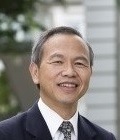Synopsis
The patent licensing practices of Qualcomm, the leading patent holder and chipmaker in the mobile wireless telecommunication sector are at the forefront of the recent development in the interface between competition and intellectual property laws. At the pinnacle of the smartphone patent war, on Jan. 2017, the Korean Fair Trade Commission (KFTC) issued landmark decision (Qualcomm II) against Qualcomm for breaching FRAND commitment and abusing its dominant position as a standard essential patent holder. The Qualcomm II case of the KFTC was a part of an international warfare between global IT companies and served as an important tipping point in the competition law approach to the standard essential patent. Shortly after the KFTC decision, the US Federal Trade Commission filed a lawsuit against Qualcomm and Taiwan Fair Trade Commission also issued a decision against Qualcomm on Oct. 2017, based on the similar facts. In fact, China NDRC charged significant fines on Qualcomm for alleged FRAND violation in 2015. And Qualcomm’s other licensing practices were found in violation of the competition law in Korea (Qualcomm I) and Japan, and under investigation in EU.
Concurrent investigations by leading competition authorities and appeal cases pending in the courts of major jurisdictions are expected to provide an important opportunity to compare and contrast their legal and economic theories from the competition law perspective. I will discuss the various aspects of the Qualcomm II case, focusing on public regulations around the world. Discussion will include most of the issues involved in the antitrust regulation and patent disputes, such as the role of competition law in disciplining standard essential patent, the relationship between the breach of FRAND commitment and finding anticompetitive effect, implication of patent exhaustion on the competition law violation, how much economic analysis is required and the role of fairness.
Additional comments will be made upon the important issue about which level SEPs license should be made, i.e. whether at the device level or component level. This is one of the key issues to decide the amount of SEPs license fees on which most big players in smartphone market are highly interested. Another important IPR issue is the exhaustion of patents that played critical role in the analysis of Qualcomm II case around the world.
Speaker

Hwang LEE is a Professor at the Korea University School of Law since 2008. His academic interest covers competition laws, intellectual property rights, telecommunication laws, and economic regulations.
Prior to joining Korea University, Professor Lee served the Korea Fair Trade Commission for twelve years while playing a leading role in prosecuting big cases including the Microsoft Tying Case. Subsequently, he was appointed to a Research Counsel for the Justices of the Supreme Court of Korea (2006). In this role he drafted final judgments for an extensive array of competition and administrative law cases, including the landmark POSCO Decision (2007) that set the liability standard about abuse of dominance from the effects-based approach.
In 2010, Professor Lee established the Innovation, Competition & Regulation Law Center (“ICR Law Center”), a research institution that specializes in interdisciplinary research of intellectual property rights, competition laws, and economic regulations. In 2013, he launched the Korea-China market & Regulation Law Center (“MRLC”) with colleagues at the Remin University Law School in China that explores competition and IPR issues in Asia.
Professor Lee often teaches at foreign institutions including U.S. and China, and also speaks frequently at diverse international conferences including events hosted by the American Bar Association, Global Competition Review, etc.
Professor Lee earned LL.B. from Korea University and J.D. & LL.M. from Columbia Law School in New York where he was an Executive Editor of the Columbia Journal of Asian Law.
Chair

Kung-Chung LIU holds an LL.B. and LL.M. from National Taiwan University and a Doctorate from the Ludwig Maximilian Universitaet (University of Munich). He was a Research Fellow at Academia Sinica, Taiwan until 2017. In 2003, he was a Visiting Professor at the Faculty of Law of the National University of Singapore and a Visiting Senior Research Fellow for the IP Academy of Singapore. Professor Liu has served as one of the founding Commissioners of the National Communications Commission in Taiwan between 2006 and 2007. In 2014-15, he was a Visiting Professor at the School of Law, Singapore Management University, and the Founding Director of the Applied Research Centre for Intellectual Assets and the Law in Asia (ARCIALA). In addition, he has been co-appointed Professor at the Renmin University, China (2017), and the Graduate Institute of Technology, Innovation & Intellectual Property Management, National Chengchi University, Taiwan (since 2010).
This event is by invitation only.
Last updated on 07 Dec 2017 .